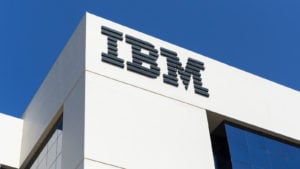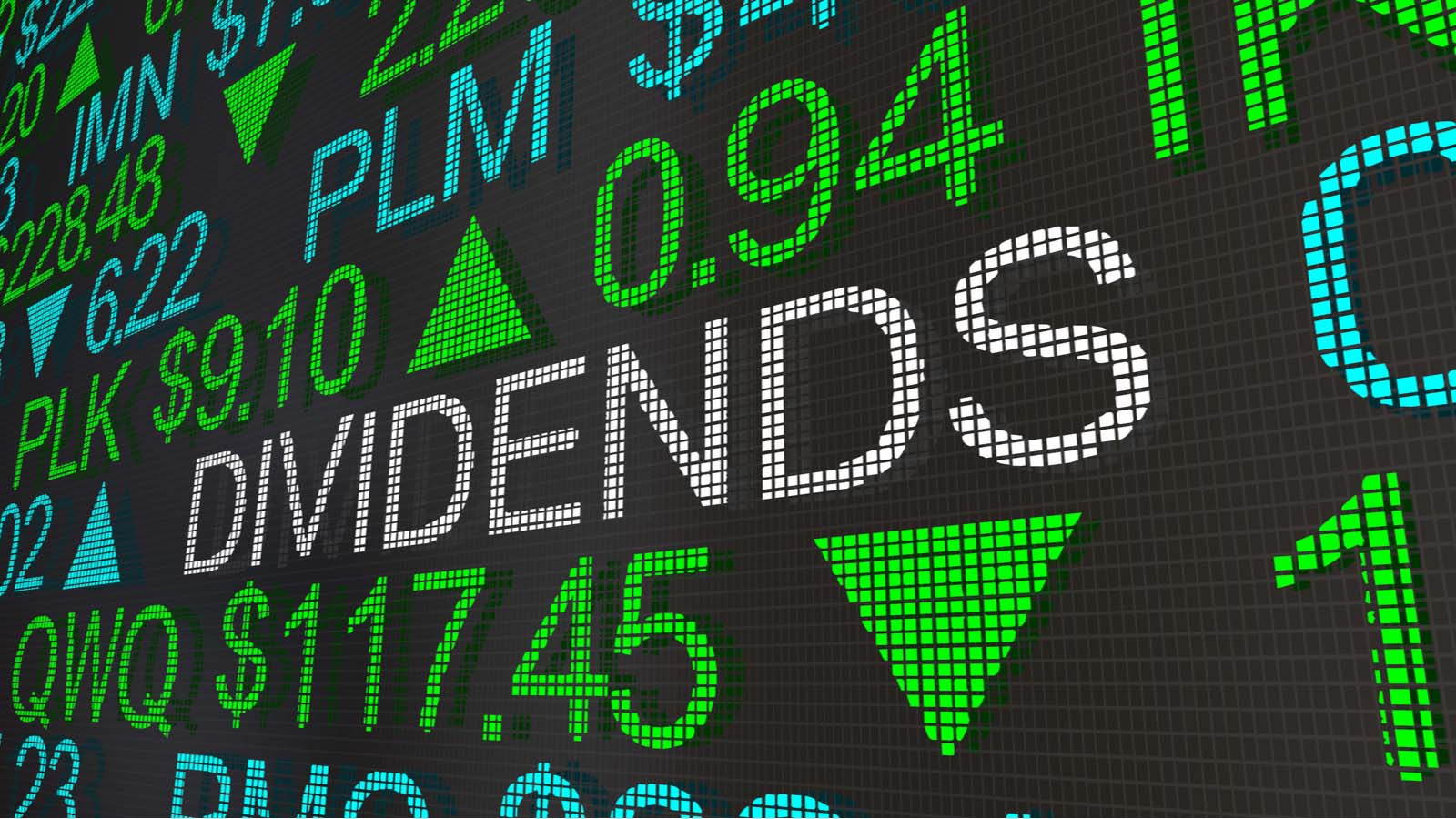It’s a difficult time to be an income investor. The S&P 500 index has rallied off of its 2020 lows and has returned to near-record highs, pushing the average dividend yield in the index below 2%. In addition, with interest rates near zero, fixed income yields are suppressed as well. The end result is that investors have to look deeper for high-yield stocks.
Fortunately, there are still many dividend stocks with yields of 5% or more. And even better, investors do not have to sacrifice quality.
Multiple high-yield stocks have sustainable dividends with room for dividend growth in the future. The following five stocks have yields above 5%, with durable competitive advantages and long-term growth potential that provide safety to their dividends.
- Philip Morris International (NYSE:PM)
- Enbridge Inc. (NYSE:ENB)
- Unum Group (NYSE:UNM)
- AbbVie Inc. (NYSE:ABBV)
- International Business Machines (NYSE:IBM)
High-Yield Stocks: Philip Morris International (PM)

Philip Morris International is one of the world’s largest tobacco companies, with a market cap of $123 billion. PM sells its products outside the United States. The cigarette maker’s product portfolio includes its flagship Marlboro brand.
On July 21, Philip Morris reported second-quarter operating results. For the quarter, the company generated net revenue of $6.65 billion, which was down 14% as reported and down 9.5% excluding currency fluctuations. Shipment volume was down 14.5%, with cigarette shipment volume down 17.6% year-over-year.
The company has been hurt by a strong dollar, which has negatively affected the conversion of international sales into dollars. It has also dealt with the global economic downturn as a result of the coronavirus pandemic. To add to its struggles, it has to combat declining smoking rates across multiple countries.
In response, PM has invested heavily in its new product line called IQOS. This is a revolutionary product which heats tobacco instead of burning it. According to the company, this produces fewer harmful effects than traditional cigarettes. IQOS has seen early success through rapid adoption and high market share in multiple international markets such as Japan and Korea. Heated tobacco product sales increased 24% last quarter, and represent PM’s biggest future growth catalyst.
In the meantime, PM stock yields 6.1%. The company is likely to distribute virtually all of its earnings-per-share in dividends this year, but future earnings growth from new products and share repurchases should provide for modest dividend increases each year.
Enbridge (ENB)

Enbridge is an integrated oil and gas company based in Canada. It operates a variety of businesses including Liquids Pipelines, Gas Distributions, Energy Services, Gas Transmission & Midstream, and Green Power & Transmission. The company has a market capitalization of $60 billion.
ENB stock has declined 26% year-to-date, as the oil and gas producer has struggled under the weight of low oil and gas prices, as well as the coronavirus pandemic which has sent the global economy into recession. In Q2 2020, Enbridge saw its revenue decline approximately 40%. However, Enbridge’s adjusted EBITDA increased 3% from the previous year’s quarter, as revenue declines were more than offset by lower costs.
Despite the coronavirus crisis, Enbridge maintained its guidance for distributable cash flow-per-share of $4.50 CAD-$4.80 CAD ($3.41-$3.63) for 2020. At the midpoint of guidance, Enbridge expects to increase DCF-per-share by approximately 2% in 2020. The company expects to maintain a dividend payout ratio of 70%, based on DCF-per-share guidance. This indicates the current dividend payout is secure.
Another important factor helping to secure Enbridge’s dividend is its quality balance sheet. With more than 40 diverse sources of cash flow and a BBB+ credit rating, Enbridge has a manageable level of debt. The company has $14 billion of available liquidity and its debt-to-EBITDA ratio remains within its target range of 4.5x to 5.0x.
Management has a target forecast of 5-7% average annual DCF growth through 2022. This growth will be achieved partly through rate increases, cost cuts, and new projects coming online. If the company reaches this forecast, it will have little trouble maintaining its dividend, and continuing to increase the dividend on a regular basis.
Enbridge has increased its dividend for 25 consecutive years. With a high dividend yield above 8%, Enbridge is an especially attractive stock for income investors.
Unum Group (UNM)

Unum Group is an insurance holding company providing a broad portfolio of financial protection benefits and services. The company operates through its Unum US, Unum UK, Unum Poland and Colonial Life businesses, providing disability, life, accident, critical illness, dental and vision benefits to millions of customers. Unum generated revenue of approximately $12 billion in 2019.
Unum has been negatively affected by the coronavirus pandemic to start 2020, but only to a mild effect. In the second quarter, Unum generated $3.0 billion in revenue, a 0.3% increase from the same quarter last year. The core Unum US segment reported a 9% decline in adjusted operating income. Premium income for the segment increased 1.2% while net investment income fell 3.9%. On an adjusted basis, earnings-per-share of $1.23 for the quarter declined 9.5% year-over-year.
Unum has developed a top position in its industry with a long track record of providing reliable service and establishing deep relationships with customers. These qualities have served the company well during recessions.
UNM stock performed surprisingly well in the Great Recession of 2008-2009. Unum posted earnings-per-share of $2.19, $2.51, $2.57 and $2.71 from 2007 through 2010, respectively. Furthermore, the dividend was increased during this time as well. Therefore, we expect Unum’s profits and dividend to hold up again in the current downturn. Unum has a 6.1% dividend yield, with a secure payout.
AbbVie (ABBV)

AbbVie is a pharmaceutical manufacturer spun off by Abbott Laboratories (NYSE:ABT) in 2013. AbbVie’s most important product is Humira, which alone represents nearly half the company’s total revenue. This is a challenge, because Humira has already lost patent exclusivity in Europe, and will lose that status in the U.S. in 2023.
Fortunately, AbbVie has prepared for this by investing in new therapies, both organically and through acquisitions. Adjusted research and development expense totaled $5 billion in 2019, and the investment is already paying off.
AbbVie has received 14 major approvals since 2013, with 10 of those coming in the core categories of Immunology and Oncology. AbbVie has multiple growth opportunities to replace Humira. One example is Imbruvica, a treatment for the most common type of leukemia in adults, which generated 21% growth in the most recent quarter.
Growth from new products led to a strong performance in the second quarter. Revenue of $10.4 billion increased 26% year-over-year, while adjusted earnings-per-share increased 4% year-over-year to $2.34 for the quarter.
The $63 billion acquisition of Allergan will also boost AbbVie’s future growth. Allergan is a leader in aesthetics products such as Botox. The combined company will have annual revenues of nearly $50 billion.
ABBV stock qualifies as a Dividend Aristocrat, as its former parent company Abbott was on the list at the time of the spin-off. AbbVie has continued to increase its own dividends each year since. The stock now has a 5.5% yield, and with a projected payout ratio near 50% of adjusted EPS for 2020, the dividend is secure with room for continued increases.
International Business Machines (IBM)

It is rare to see tech stocks with high yields, but IBM is a unique stock within the tech sector. IBM is a global information technology company that provides integrated enterprise solutions for software, hardware and services. In the services business, IBM is the world’s largest IT provider with 5.5% market share. The company has five business segments: Cloud & Cognitive Software, Global Business Services, Global Technology Services, Systems, and Global Financing. IBM generated revenue of approximately $77 billion last year.
Earlier this month, the firm announced it will spin off its Global Technology Services division into its own publicly traded company. Its goal in doing so is to shift the focus at IBM on cloud services.
IBM reported better-than-expected results for Q2 2020. For the quarter, companywide revenue decreased 5.4% while diluted adjusted earnings per share declined 31%. However, revenue was significantly impacted by divestitures and currency fluctuations, which are generally non-recurring items. Excluding divestitures and currency, adjusted revenue declined a milder 1.9% for the quarter.
IBM continues to see declines in certain legacy segments, like consulting and application management services, but underneath the surface the company is making big strides in major growth areas such as the cloud. Total cloud revenue increased 34% on an adjusted basis for the quarter. Cloud revenue has increased 23% in the trailing four quarters. Lastly, Red Hat generated 18% revenue growth for the quarter.
These growth segments provide IBM with the ability to pay a generous dividend to shareholders. IBM stock currently yields 5.2%. The company has increased its dividend for 25 consecutive years, meaning it will join the list of Dividend Aristocrats in 2021.
On the date of publication, Bob Ciura held a long position in ABBV.
Bob Ciura has worked at Sure Dividend since 2016. He oversees all content for Sure Dividend and its partner sites. Prior to joining Sure Dividend, Bob was an independent equity analyst. His articles have been published on major financial websites such as The Motley Fool, Seeking Alpha, Business Insider and more. Bob received a bachelor’s degree in Finance from DePaul University and an MBA with a concentration in investments from the University of Notre Dame.
